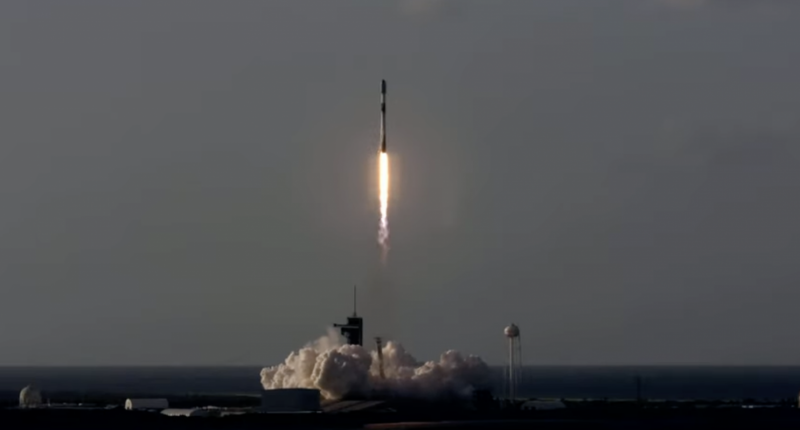SpaceX’s Starlink constellation has been growing steadily over the past years as Elon Musk’s company has been sending batch after batch of satellites to space. Since 2018, SpaceX has launched over 2000 Starlink satellites, and now, that number has a new addition.
This comes courtesy of SpaceX’s latest launch of 48 Starlink satellites into orbit. The same was launched aboard a Falcon 9 rocket from the Space Launch Complex 40 at Cape Canaveral in Florida. The launch occurred at around 8:45 AM EST and marks the tenth launch of the space company in ten weeks.
The Falcon 9 rocket is an old horse for such missions and has been part of several SpaceX missions over the past year. Its first stage booster successfully returned to Earth a few minutes after the mission, landing at SpaceX’s droneship A Shortfall of Gravitas. This marks the fourth successful launch and landing of this first-stage booster. It had previously launched Arabsat-6A, STP-2, and COSMO-SkyMed Second Generation FM2.
Starlink is an ambitious, but achievable, plan of spreading high-speed, low-latency internet across the world, transcending geographical barriers and other obstacles. It hit a roadblock in India after the government asked its people not to sign up for the service, since Starlink Internet Services did not have a license to operate in the country. It had already received over 5000 orders in India.
More recently, however, it has gained acceptance in Ukraine, which continues to be besieged by Russian forces. That was possible after Mykhailo Fedorov, Ukraine’s Vice Prime Minister and Minister of Digital Transformation, took to Twitter to plead Musk to provide Ukraine with Starlink stations. Much of the nation’s internet was in disarray due to the invasion, and Fedorov asked Musk to take the steps and to address sane Russians to stand against the invasion.
The current launch, however, is unremarkable. Or rather, it would have been, if not the words of SpaceX’s launch director before launch. “Time to let the American broomstick fly and hear the sounds of freedom,” he said. This is a reference and a response to the statement by Roscosmos head Dmitry Rogozin, who had earlier said “let them fly on something else, their broomsticks” as Russia froze the sales of rocket engines to the US. Rogozin’s statement was a response to the economic sanctions that were imposed on Russia due to its invasion of Ukraine.
Musk, whose tweets are mostly memorable, called its Falcon 9 rocket a dependable “American broomstick” in response on Twitter.
